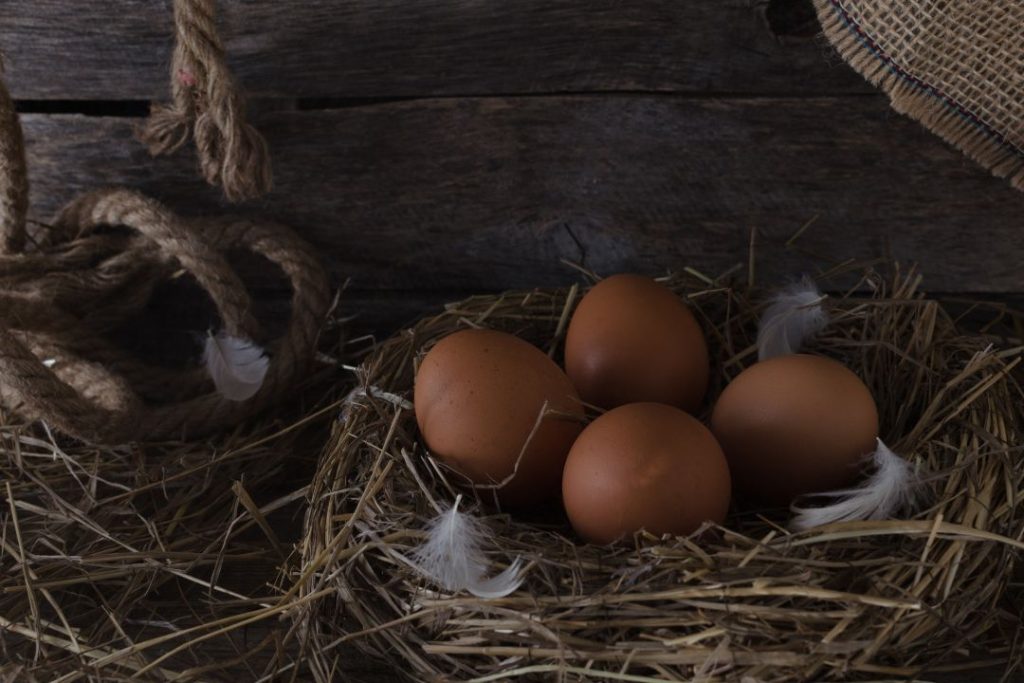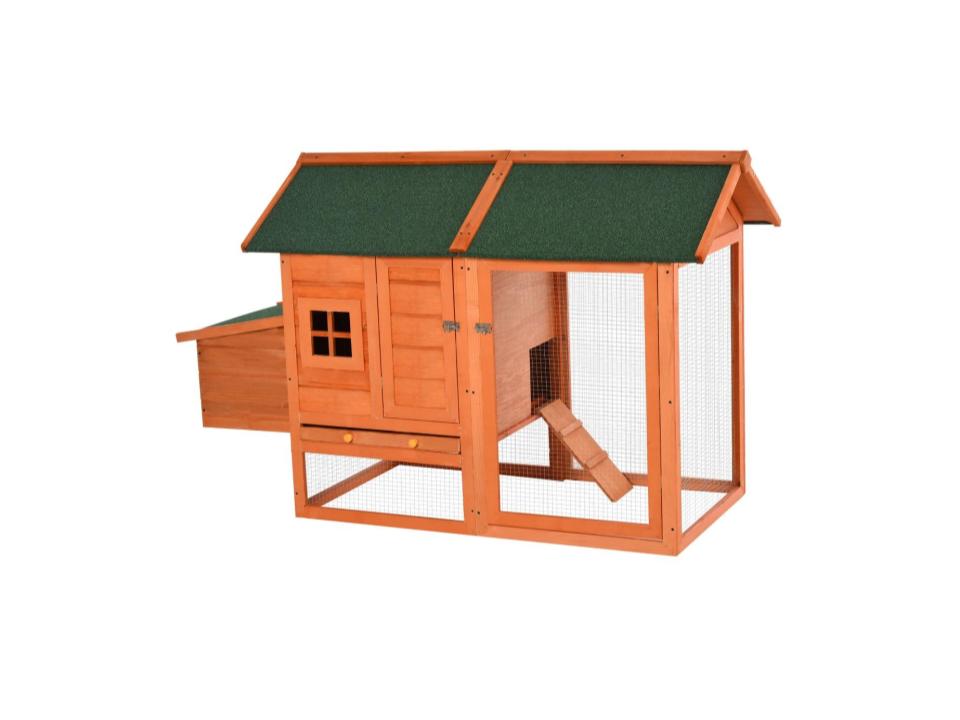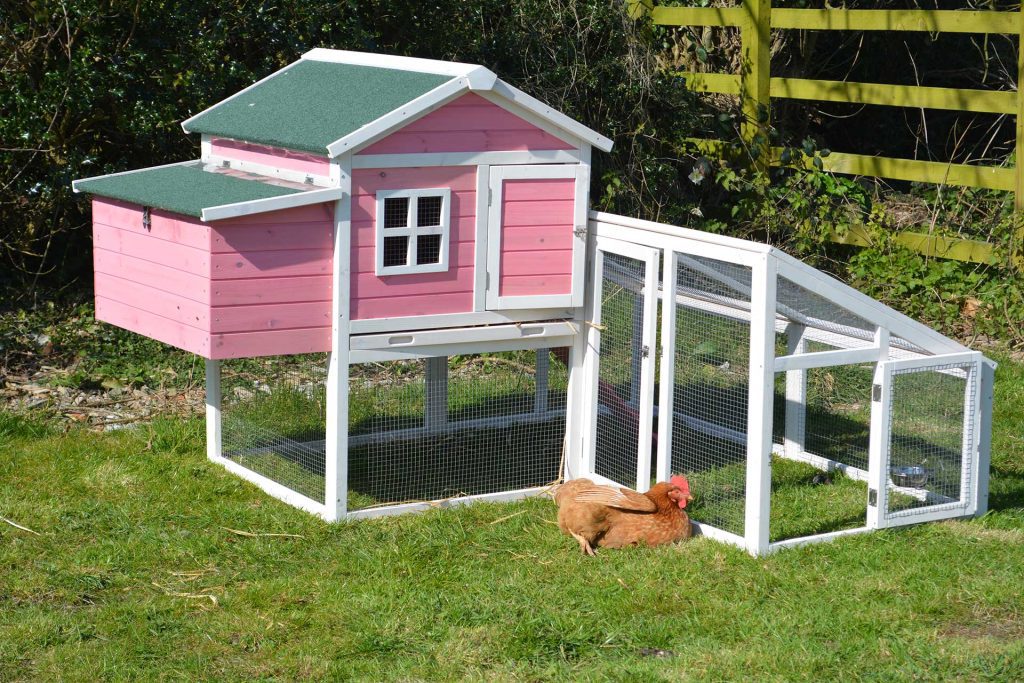Start with the question “Can I use pine needles in my chicken coop?” The answer is a resounding yes! Pine needles are a useful material and can be a fantastic addition to your chicken coop.
It offers numerous benefits. The benefits are natural and economical bedding, excellent odor control, pest control properties, etc. Pine needle’s suitability largely depends on your flock’s specific needs and your coop’s environment.
However, like anything else, you must use pine needles in your coop with proper caution and understanding. Therefore, we recommend you consult a local poultry expert or veterinarian for personalized advice.
Now without wasting time, research this article to explore more details!
Can I Use Pine Needles in My Chicken Coop?
Yes, You Can!
When maintaining a chicken coop, the bedding material chosen plays a crucial role in ensuring your flock’s health and comfort. Among the various options available, pine needles are abundant in areas with pine trees. It often emerges as a potential choice.
Pine needles are readily available. And it is a cost-effective bedding solution. Their lightweight nature ensures good airflow, helping to keep your coop dry. Additionally, the natural pine scent can act as a deodorizer. It masks unpleasant odors and creates a fresher environment for your chickens.
However, to learn more of it we recommend you to watch this video.
What Are The Advantages Of Using Pine Needles in Your Chicken Coop
Pine needles offer numerous benefits as a bedding material for your chicken coop. They’re natural, economical, and provide excellent odor and pest control.
So next time, before asking, “Can I use pine needles in my chicken coop?” remember these benefits and say yes!
1. Natural and Economical Bedding
Pine needles serve as a fantastic bedding option for chicken coops. Their abundance, especially in the fall, makes them readily available. You’ll find them in many areas, often free for collection.
As a result, they offer an economical solution for chicken coop bedding. Bedding for chickens doesn’t get more natural than pine needles. They fall from trees, ready to use, with no processing required.
The cost-effectiveness of pine needles is hard to beat. Why spend money on expensive bedding when nature provides a perfect solution? Pine needles save you money without compromising on quality.
2. Excellent Odor Control
Freshness is a key feature of pine needles. Their pleasant scent is a natural deodorizer for your chicken coop. You’ll notice a significant reduction in unpleasant odors, making your coop a more enjoyable place.
Your chickens will appreciate the fresh environment. The scent of pine needles creates a calming atmosphere for your flock. A happy chicken is a productive chicken, after all.
As a chicken keeper, you’ll enjoy the fresh scent too. No more holding your breath when entering the coop. Pine needles transform the coop into a place you’ll love to visit.
3. Pest Control Properties
Insect-repelling properties are another advantage of pine needles. They naturally deter many types of insects. Your chicken coop becomes less attractive to these unwanted visitors.
Insects can cause discomfort and health issues for your chickens. By using pine needles, you’re helping to protect your flock.
The chickens will be healthier and more comfortable, thanks to the pest-repelling properties of pine needles. Pine needles are a natural pest control solution. No need for chemicals or expensive treatments.
What Precautions Should You Follow Before Using Pine Needles in Your Chicken Coop?
Pine needles offer numerous benefits as chicken coop bedding, but precautions are necessary. You can create a comfortable, healthy, and safe environment for your chickens by following the precautions below:
1. Potential for Mold Growth
Despite their benefits, pine needles can retain moisture. Moisture accumulation might lead to mold growth. Proper ventilation in your coop is crucial to prevent this problem. Regular replacement of pine needles also helps in keeping mold at bay.
Mold poses a health risk to your chickens. Ensuring the coop is well-ventilated reduces the chances of mold growth. Fresh air circulation is key to a healthy coop environment.
Regularly replacing the pine needles is another preventive measure. Old, damp pine needles are a breeding ground for mold. Fresh pine needles ensure a clean, healthy environment for your chickens.
2. Sharp Ends Can Cause Injury
Pine needles, especially fresh ones, can be sharp. Your chickens could get poked or scratched. Using mature, fallen pine needles that have softened over time can mitigate this risk.
Chicken safety is paramount. Sharp pine needles can cause discomfort or injury to your flock. Choosing the right type of pine needles is essential.
Mature, fallen pine needles are the best choice. They’ve had time to soften, reducing their sharpness. Your chickens can enjoy their bedding without the risk of injury.
How to Use Pine Needles in Your Chicken Coop?
Using pine needles in your chicken coop involves the following steps:
- Choosing the right needles
- Preparing them properly
- Applying them correctly.
Now one by one, we will discuss the above steps in detail:
1. Choosing the Right Pine Needles
Selecting the right pine needles is the first step. Mature, brown pine needles naturally falling from the tree are the best choice. These needles are softer and pose less risk of injury to your chickens.
Mature pine needles are softer and safer. They’ve had time to lose their sharpness, making them ideal for chicken coop bedding. Your chickens’ safety should always be a priority.
Fallen pine needles are usually the right maturity. They’ve naturally aged and softened, making them perfect for your coop. The softer the pine needles, the safer they are for your chickens.
Brown pine needles are a good indicator of maturity. They’ve dried out and lost their sharpness. Always opt for brown pine needles for your chicken coop.
2. Preparing the Pine Needles
Proper preparation of the pine needles is crucial. Let them dry out thoroughly before using them in your chicken coop. It reduces mold growth risk.
Thorough drying of pine needles is essential. Moist pine needles can lead to mold growth, harming your chickens. Always ensure the pine needles are completely dry before use.
A sunny area is perfect for drying pine needles. The sun’s heat helps to dry out the needles quickly and effectively. A few days in the sun should be enough to prepare the pine needles.
Spreading out the pine needles helps them dry evenly. Pile them up, and the ones in the middle might stay moist. Spread them out to ensure they all get a good dose of sun.
3. Applying the Pine Needles
The application of pine needles in your chicken coop requires some consideration. Aim for a depth of about 2-3 inches. This provides a comfortable layer for your chickens without being too deep.
A depth of 2-3 inches is ideal. Too shallow, and the pine needles won’t provide much comfort. Too deep, and it could become difficult for your chickens to move around.
Comfort for your chickens is the goal. The right depth of pine needles provides a soft, comfortable surface for your chickens. They’ll enjoy scratching around in it and settling down for a cozy nap.
Frequently Asked Questions
Can I Use Any Type of Pine Needles in My Chicken Coop?
It’s best to use mature, brown pine needles that have naturally fallen from the tree. These needles are softer and less likely to cause injury to your chickens.
How Can I Prevent Mold Growth Using Pine Needles in My Chicken Coop?
Proper ventilation in your coop is crucial to prevent mold growth. Also, ensure the pine needles are thoroughly dried before use and replace them regularly.
How Deep Should the Layer of Pine Needles Be in Your Chicken Coop?
Aim for a depth of about 2-3 inches. It provides a comfortable layer for your chickens without being too deep.
Do Pine Needles Help Control Pests in the Chicken Coop?
Yes, pine needles have natural insect-repelling properties. Using them in your chicken coop can help keep many types of insects at bay.
How Often Should I Replace the Pine Needles in My Chicken Coop?
Regular replacement is key to maintaining a clean, healthy environment for your chickens. The frequency can depend on your flock’s size and the local climate.
End Note
Hopefully, you already get the answer to your question, “Can I use pine needles in my chicken coop?” Yes! You can use pine needles in your coop. It is a natural, cost-effective, and beneficial chicken bedding option.



